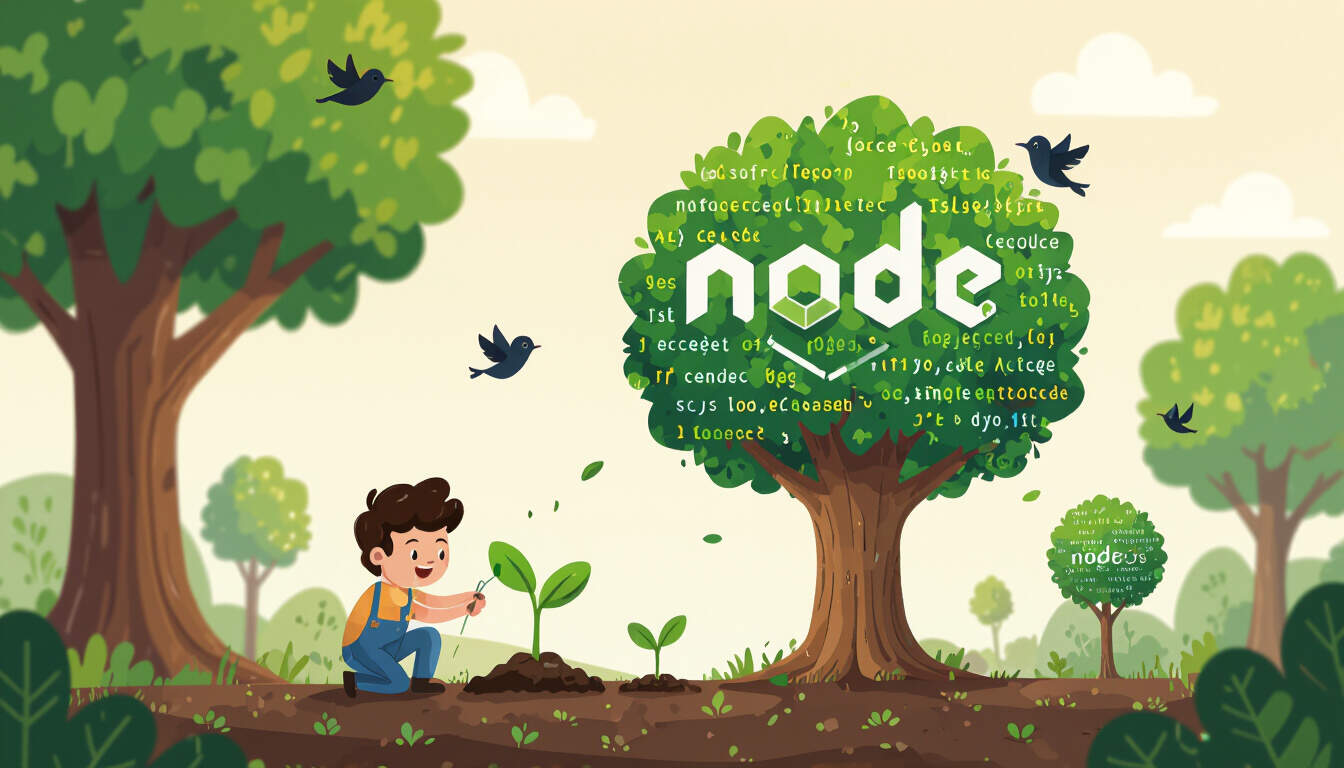Building Node.js Applications for Freelance Opportunities
 by Verner Mayer
by Verner Mayer
Discover how Node.js applications can open doors to freelance web development. This guide covers basics, practical steps, and tips for beginners to create efficient apps and build a career in web development, all while gaining essential skills.

Many people interested in web development find that learning about Node.js opens up new possibilities. Node.js is a platform that allows developers to run JavaScript on the server side, making it easier to build scalable applications. For those aiming to work as freelance web developers, this technology offers a way to handle real-time data and create dynamic websites.
One key benefit of Node.js is its ability to manage multiple connections at once. This means you can develop applications that respond quickly to user interactions. As a beginner, starting with Node.js can help you understand how servers work and how to connect front-end and back-end elements.
To get started, you need to install Node.js on your computer. Visit the official website and download the latest version. Once installed, you can use the command line to create your first project. For example, set up a simple server that listens for requests. This process involves writing basic JavaScript code to handle HTTP requests.
Setting Up Your First Node.js Project
Begin by creating a new directory for your project. Inside this folder, run npm init to generate a package.json file. This file keeps track of your project's dependencies. Next, install Express, a framework that simplifies building web applications with Node.js. Use the command npm install express to add it to your project.
With Express installed, you can write code to set up a basic server. Create a file named app.js and add the necessary code to start the server. For instance, require the Express module and define routes for different pages. This step is crucial for beginners because it shows how to structure an application.
As you build your skills, consider working on projects that solve common problems. For example, create a web app that manages user data or processes forms. These projects can serve as portfolio pieces when you start seeking freelance work.
Why Node.js Matters for Freelancers
In the field of web development, having skills in applications built with Node.js can set you apart. Clients often need developers who can deliver fast and efficient solutions. Node.js supports this by allowing you to use the same language for both client-side and server-side code, which streamlines the development process.
Freelance web developers frequently use Node.js for tasks like building APIs or real-time chat features. By focusing on these areas, you can attract clients looking for modern web solutions. Remember to practice regularly to improve your efficiency and produce high-quality work.
Practical Tips for Learning and Applying Node.js
Here are some steps to follow as you learn:
- Start with online tutorials that cover the basics of Node.js.
- Experiment with simple examples, such as creating a to-do list app.
- Join community forums to ask questions and share your progress.
- Work on open-source projects to gain experience.
Testing your applications is another important aspect. Use tools like Mocha to write tests and ensure your code works as expected. This practice helps in delivering reliable applications to clients.
Once you feel confident, think about marketing your skills. Create a profile on freelance platforms and showcase your Node.js projects. Highlight any unique features you have developed, such as efficient data handling or user-friendly interfaces.
Moving Forward in Web Development
As you continue to build Node.js applications, you'll notice improvements in your problem-solving abilities. This growth is essential for a career in freelance web development. Focus on creating applications that are user-focused and perform well under different conditions.
In summary, working with Node.js provides a solid foundation for aspiring web developers. By building and deploying applications, you can gain the experience needed to succeed independently. Keep practicing and applying your knowledge to real-world scenarios for the best results.
